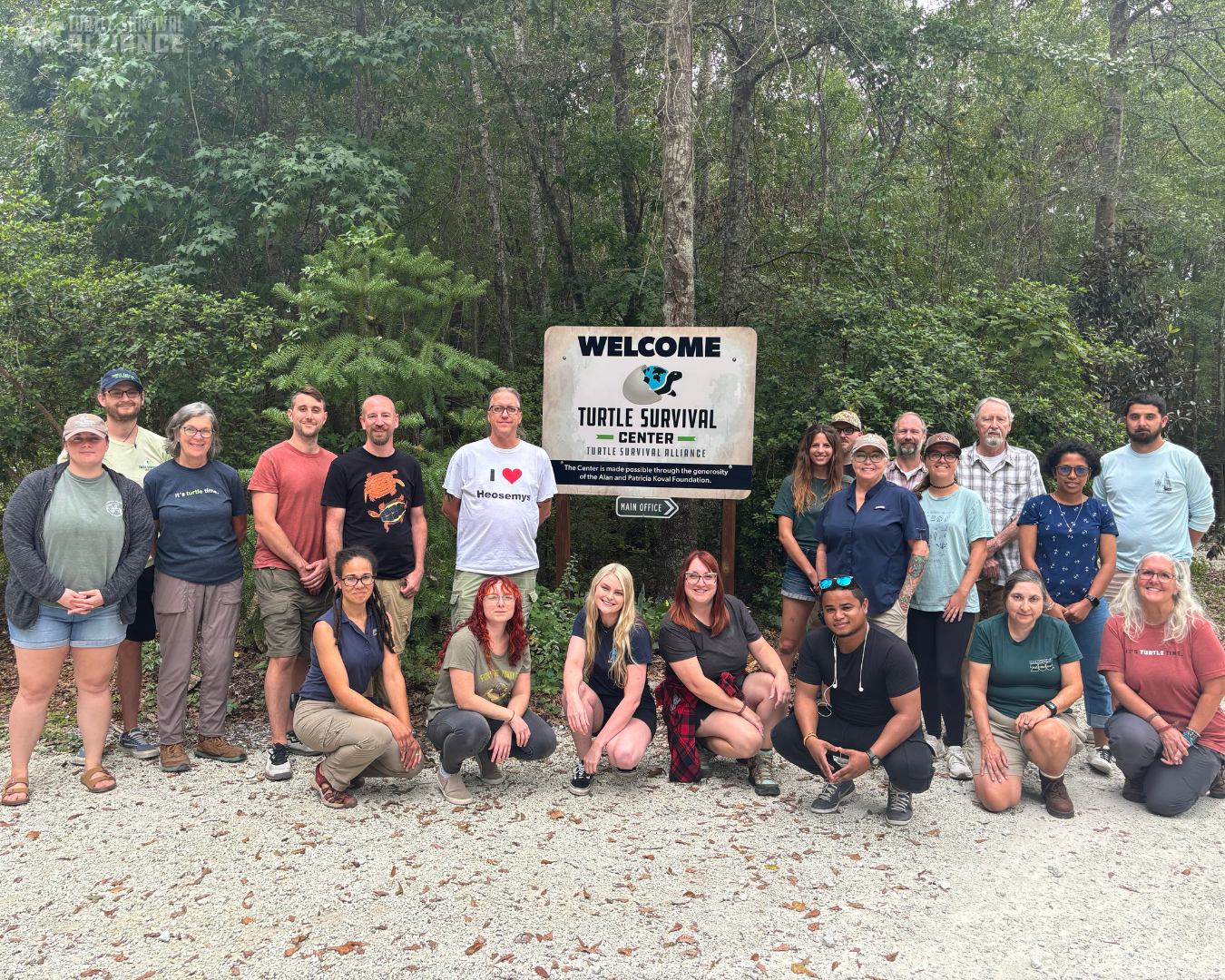Tails from the Turtle Survival Center: Turtle School and Hatching Season
By A.J. Fetterman, Chelonian Keeper II, Turtle Survival Center
Summer has come and gone in the Lowcountry of South Carolina, which means it’s time for another update from the Turtle Survival Center (TSC) and a check in with me, A.J. Since my last update, we talked about a lot of the eggs that we had been finding, and since then, we have hatched many of those eggs, started preparing the animals for brumation (the dormant period in colder weather for reptiles), and hosted zoo professionals from around the world in our second annual Chelonian Biology, Conservation, and Management Course.
Informally called “Turtle School”, our inaugural course was held last year, and this is now our second year running this course. We welcomed 10 zookeepers responsible for caring for a variety of species to attend a full week of turtle-specific lessons, ranging from how to properly set up an enclosure to how to identify illnesses and everything in between. Our goal is to teach our standards of care to professionals from various facilities, and in doing so increase the overall welfare of turtles and tortoises in captivity. Along with this, we also took advantage of the property that the TSC sits on and did some mark and recapture surveys of some of our native turtle species.
Turtle Survival Alliance and our partners have two facilities in Madagascar, where over 26,000 Radiated Tortoises are housed in preparation for release. We were fortunate enough to be able to host the lead keepers at both of these facilities for Turtle School, K’oloina and Carrela. As you can imagine, caring for that number of animals is an incredibly difficult and tedious task, so we were happy to share some of our experiences and knowledge as well as soak up information from them.
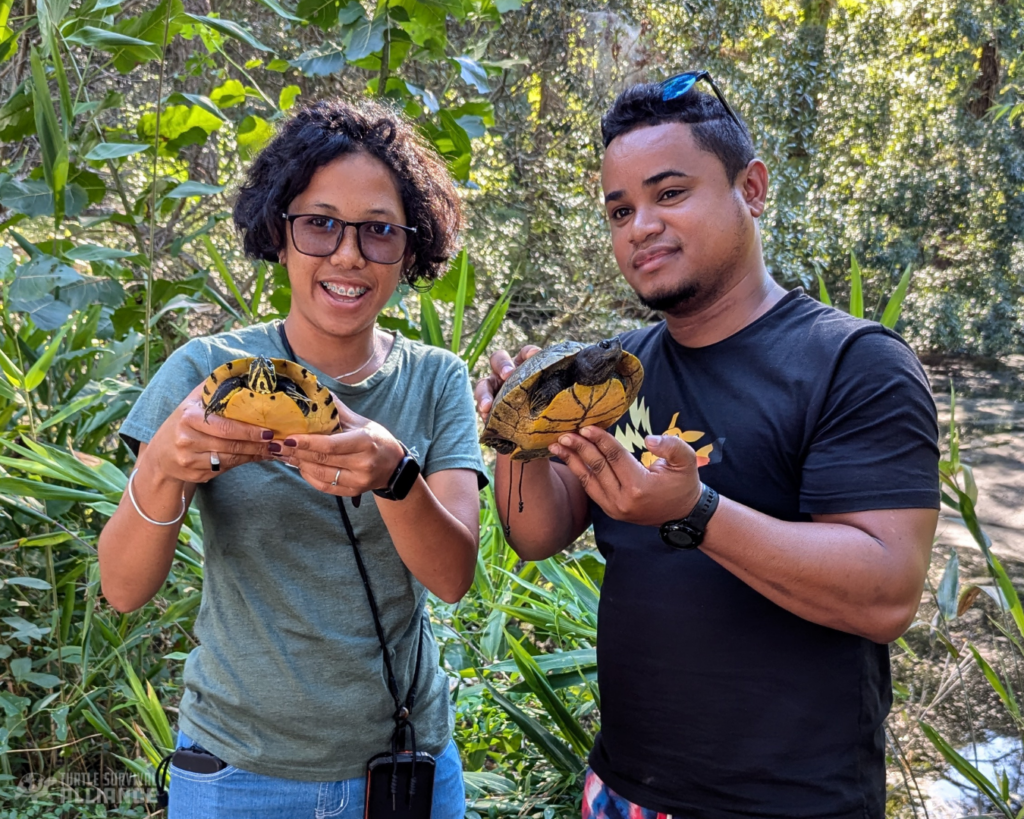
K’oloina (left) and Carrela (right) hold wild Yellow Belly Slider (Trachemys scripta) near the property of the Turtle Survival Center (TSC). Photo by Ashley Brooks.
Since August, we are also in the midst of our heavy hatching season and many turtle species are emerging from their eggs. So far in 2024, we have hatched over 75 turtles from 13 different species. A large milestone for us this year was hatching our 100th Indochinese Box Turtle (Cuora galbinifrons) as well as totaling over 1000 hatchling turtles since the Center was founded.
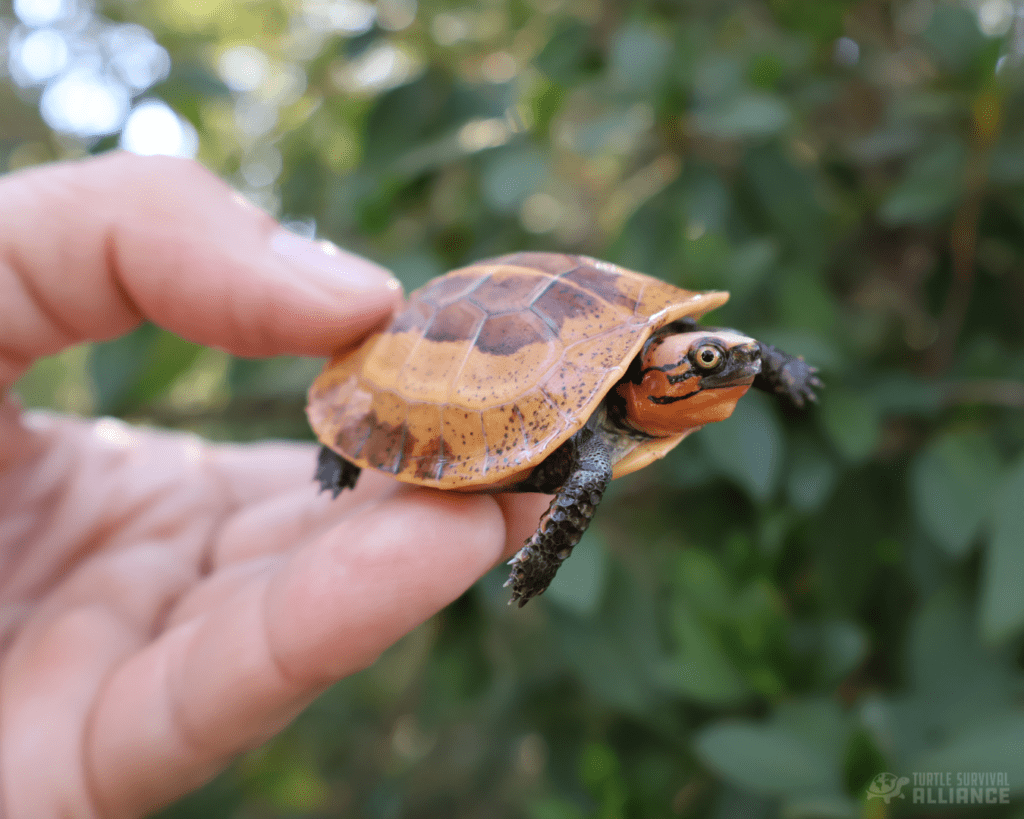
The 100th Indochinese Box Turtle (Cuora galbinifrons) hatched at the TSC in September 2024. Photo by Chelsea Rinn.
Another notable pair of hatchlings for us this year were the first twins that the center has produced. Way back on March 27th of this year, we found a very elongated, figure 8-shaped egg in the enclosure of a female Sulawesi Forest Turtle (Leucocephalon yuwonoi), and to our surprise, it started developing two distinct embryos on the two poles of the egg. Over the course of several months, it continued developing and eventually, the egg pipped (The first cracking of the turtle breaking free from its egg) and there were two, similar-sized healthy hatchling Sulawesi Forest turtles ready for life outside the egg.
Check out our webinar where A.J. introduced all the hatchlings at the TSC!
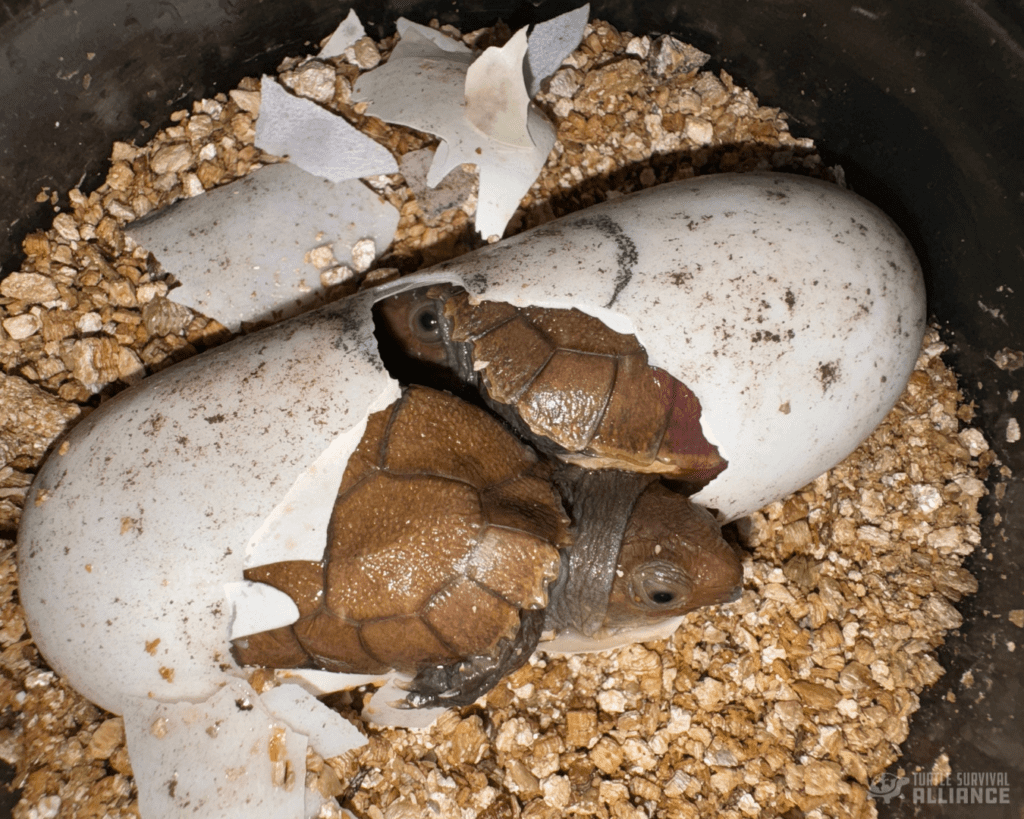
A rare phenomenon, these “twin” hatchling Sulawesi Forest Turtles (Leucocephalon yuwonoi) developed two distinct embryos on the two poles of one egg. Two health hatchlings emerged after incubation. Photo by Cris Hagen.
The Sulawesi Forest turtle is a really interesting species native to the island of Sulawesi, a part of the archipelago of Indonesia. It is endemic to just the northern part of the island, making the species vulnerable to being exploited for the food and pet trade. They display a high level of dimorphism between males and females, with the males getting much larger and having a proportionally larger, white head. The Turtle Survival Center is home to 41 adults and many of their offspring, and we have sent several of these offspring to our partner Zoos and Aquariums to keep this species thriving in captivity.
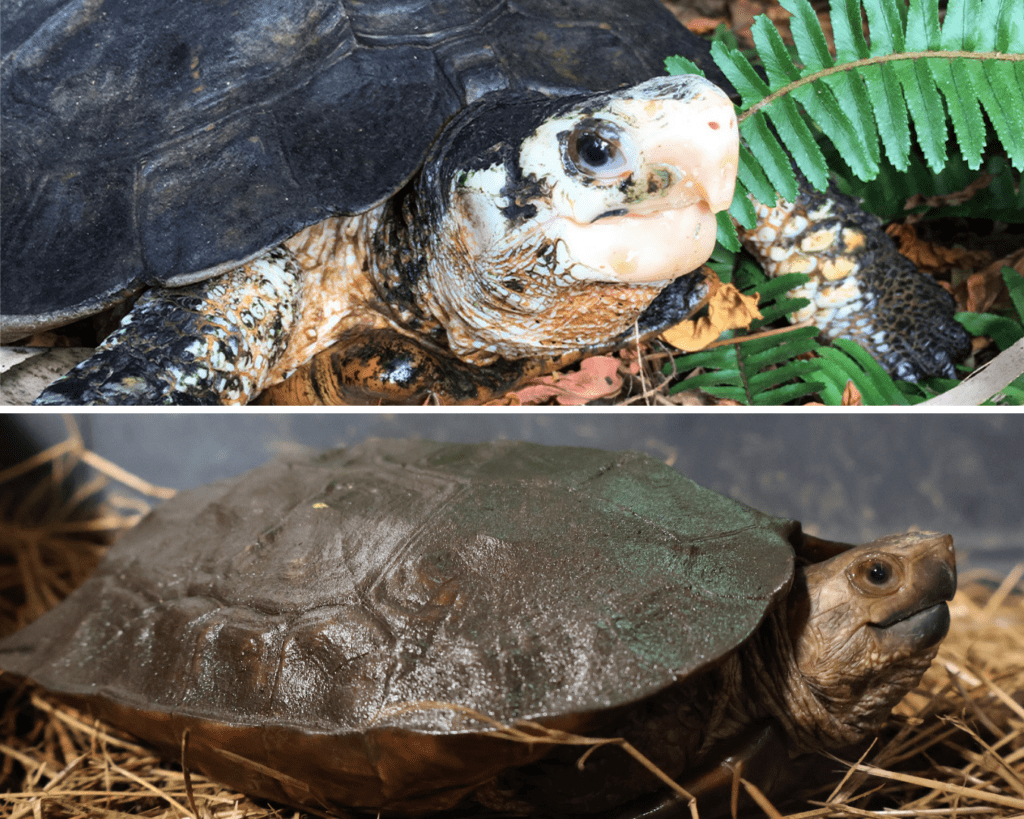
A male Sulawesi Forest Turtle (top), and a female Sulawesi Forest Turtle (bottom). This species exhibits sexual dimorphism, meaning the turtles have different features based on their sex. The males are larger, with light yellowish skin, and the females have dark brown coloration. Photos by Jordan Gray (top) and Chelsea Rinn (bottom).
As you can imagine, the work doesn’t let up here at the Turtle Survival Center, even as the weather starts to. Soon we will be making sure every turtle that is outside is ready for brumation, but around half of the collection lives indoors and will still be fed and active during the winter months.
Look out for another blog soon, and we can learn a little bit more about turtles and some of the awesome species that call the Turtle Survival Center home!
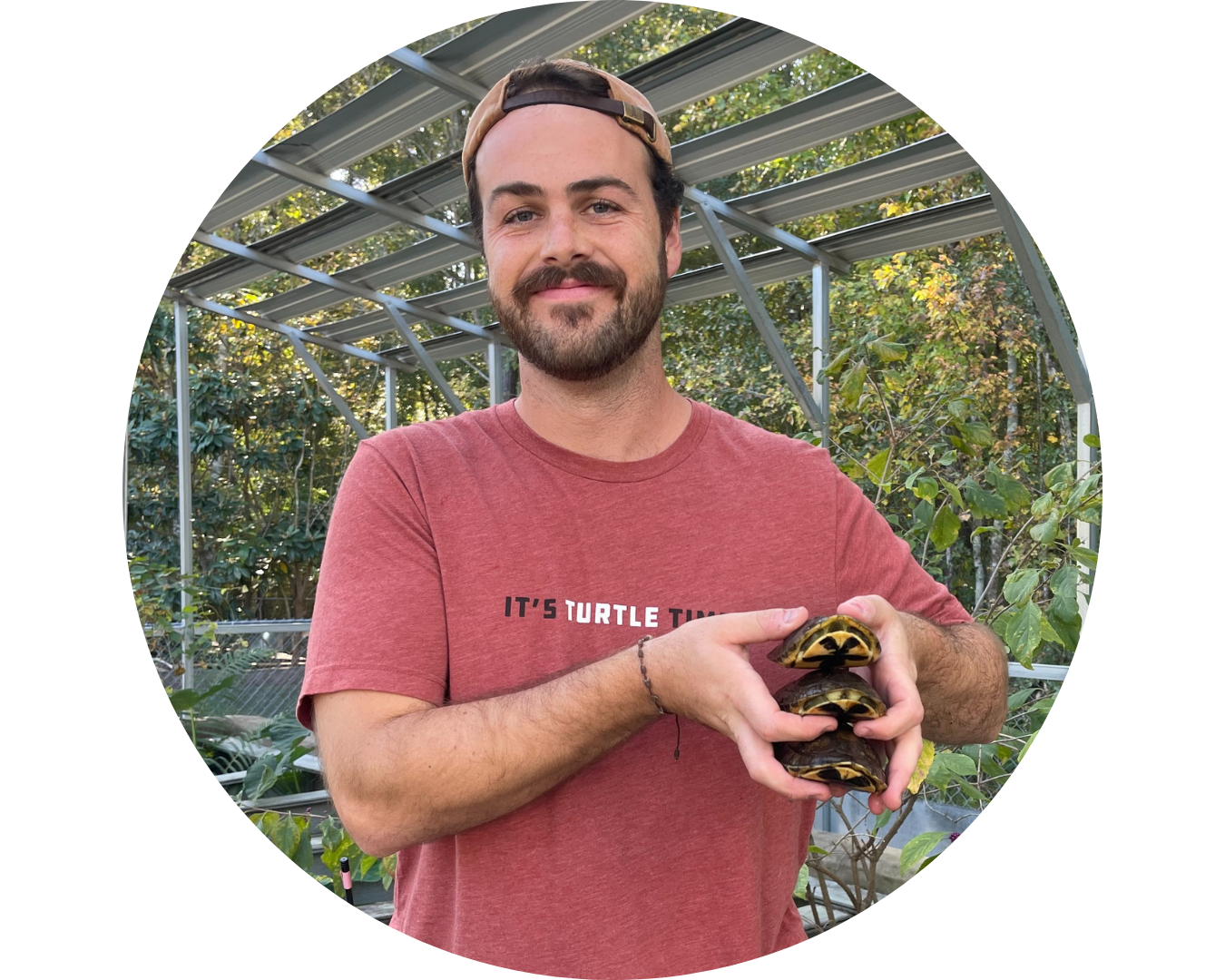
-A.J.
